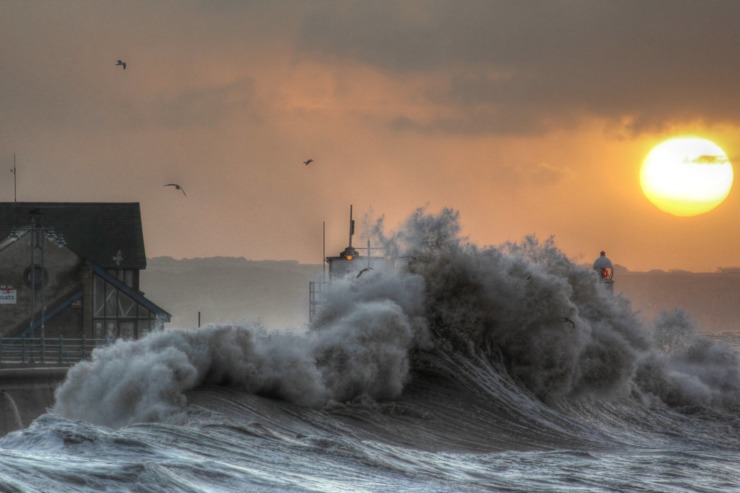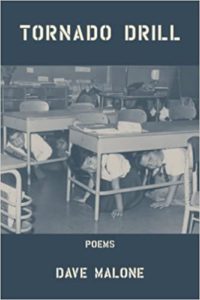Observation Poems: How to Begin
For my birthday, my husband Jesse gave me a subscription to The New Yorker, and while I don’t read it cover to cover, every morning while my coffee is brewing, I wake myself up reading that week’s magazine. I’ve “[swam] in the weird” with Elisabeth Moss and rode the fiercest, most monstrous waves with Kai Lenny. I went shopping with Jeff Tweedy of Wilco. He was looking for a new Stetson and there’s no other place you go in Chicago for something like that except Alcala’s Western Wear.
Each piece I read gives me a window into someone else’s world and work and passions, and each piece shows me what it is words can do. In effect, I begin to consider my life as soil for stories, and I want to try to do what these other authors do.
But not yet.
Poetry is the next part of my writing routine and ritual. I read and journal about one poem before I get to my own writing. These days I’m working through Dave Malone’s Tornado Drill. The first one, with the same title as the book, has me huddled under a classroom desk looking at “dust motes [that] float and sparkle” and listening to “howling windows” from the tornado that’s on its way. It’s an evocative and spooky poem with so many sensory details it got me thinking, “What do these details do?”
One response is to say that the details Malone uses invite us into the experience. I’d even argue that they grab a hold of us with two fists and drag us into the classroom. (This is not a criticism; it is to express how palpable the details are.) However, this is true of a lot of poems, and I wanted to know what it was about “Tornado Drill” that left me a little breathless and with a shiver or two creeping down my spine.
It is Malone’s last line that prompted my inquiry. I won’t give anything away, but he makes a very deliberate and startling move, and I think that the move was made because of what it was Malone observed in his classroom on that day when the tornado paid a visit. Which suggests to me that it was the observations — naming what is — that moved the poet to act.
This reminds me of Dumbledore’s insistence that Harry Potter say Voldemort’s name (instead of “He-Who-Must-Not-Be-Named”) because saying his name gives Voldemort less power. It’s not some magic trick — it is the art of observation. To see and listen and touch who and what we are dealing with means to attend to that experience or person. And when we attend to, we can contend with. I believe contending with is an act of creativity.
And when we attend to, we can contend with. I believe contending with is an act of creativity.”
Of course it is hard not to read a poem about a classroom under duress and not think of Uvalde or any number of tragically similar situations that have occurred over the decades. And of course it is easy and perhaps understandable to shout, “I’m done observing” when the context is mass shootings. But here’s something else I read in The New Yorker: In the “Talk of the Town” section, Jelani Cobb writes that the fault is not only on a certain group of people, rather, it “is on every one of us who has yet to find the courage, the creativity, or the resolve to stop it.”
This time it is the word “creativity” that reaches up out of the paper to grab me by the collar and screams, “Do something!” I, who pride myself on having chosen to live a creative life, must find a way to use what I have within me to respond, to act, to create.
I wrote earlier that I wake myself up reading, and here is an accidental metaphor: reading is an alarm. I believe reading stories and allowing them to seep into all that we are (and all that we’re not) allows us to find a way to be willing to act for justice and for peace, for friendship and love, for equity and for harmony.
I believe I’ll hunker down with my poet friend Malone and see what it is I can create with my surroundings.
Try It: Observation Poems
Dave Malone spends most of his poem describing a scene, until the last line when he acts. This week, write a poem using as many sensory details as you can, but save the last line for an act of some sort. Here’s mine:
We talk about a Psalm
over turkey and cheese sandwiches,
potato chips,
and chocolate chip cookies.
There’s lemonade, too.
“True story,” one guy says,
“I knew a pastor who once said,
‘I want to die praising God.'”
I pop a potato chip in my mouth and chew.
It’s tissue thin and I regret eating it.
I only like the kind with ridges.
“And then he died,” the guys says.
“Awesome,” someone responds.
I drink the last of my lemonade;
brush Kaiser roll crumbs off my lap.
We pray and someone behind me
prays in Spanish.
The words are red and yellow
they are spicy and salty
and I feel them more than I understand them.
Some days,
I treat myself to a Pop-Tart
in the afternoon – almost evening.
Today, it is the strawberry Pop-Tart –
sweet and dry –
that reminds me of my Calvin days
all that I clung to
as I drive away.
Photo by EVO GT, Creative Commons, via Flickr. Post by Callie Feyen.
Browse writing prompts

—Celena Roldan
- Poetry Prompt: Courage to Follow - July 24, 2023
- Poetry Prompt: Being a Pilgrim and a Martha Stewart Homemaker - July 10, 2023
- Poetry Prompt: Monarch Butterfly’s Wildflower - June 19, 2023


Leave a Reply